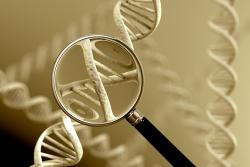When it comes to diagnosing patients, doctors have access to a variety of diagnostic tools. These tools are designed to help physicians quickly and accurately diagnose an illness or condition in order to provide the best possible treatment plan for their patient. In this article, we will discuss 7 essential diagnostic tools that doctors use on a regular basis. To ensure accuracy and quality of care, these diagnostic tools can be used in combination with the patient’s medical history and physical examination findings.
1. Stethoscope
When people picture a doctor, they will likely imagine them with a stethoscope around their neck. A stethoscope is one of the most-used tools that allows healthcare professionals to listen mainly to the heart but also to other major organs. This allows them to detect any irregularities and determine the health of the heartbeat of the individual.
2. Otoscope
When a patient is having any kind of probable with their ears and/or hearing, it is likely that an otoscope will be used. This is a diagnostic tool that allows a doctor to examine the ear canal and check if there are any irregularities, such as a perforated eardrum or build-up.
3. Thermometer
Thermometers are another commonly used tool, especially since the COVID-19 pandemic. These will provide an accurate temperature reading of the patient to see if their temperature is high (above 37 degrees). Accuracy is key, so many medical thermometers use thermocouples to get an accurate reading.
4. ECG Machine
A stethoscope is a great tool, but it is limited. An ECG machine is a quick and easy test of the heart’s health, including the rhythm and electrical activity. An ECG works by sensors detecting the signals that are produced each time your heart beats.
5. Pulse Oximeter
A pulse oximeter is a diagnostic tool that many people have purchased for use at home since the pandemic as it can be used to detect if they are likely to need medical care. A pulse oximeter measures the amount of oxygen in the blood and can detect if there is a problem before the onset of symptoms (feeling breathless).
6. Blood Pressure Monitor
A blood pressure monitor is another common tool used by doctors and can also be handy to have at home. Monitoring blood pressure is a great way to determine if there are any health issues and to assess the overall condition of the patient.
7. Ophthalmoscopes
Eye health is incredibly important but can also be hard to diagnose without the proper tools. Ophthalmoscopes are one of the most commonly used devices as a specialized light that allows doctors to look into the patient’s eye and determine the health of the retina, optic nerve and other key parts.
These are the main diagnostic tools that doctors will use to make their diagnosis. These are the devices that are relied on each and every day and play a major role in the healthcare system.
Conclusion: Necessity of Diagnostics
The conclusion of the article “7 Essential Diagnostic Tools Used by Doctors” reveals the importance of diagnostic tools in healthcare. Diagnostics provide doctors with a wealth of information to help them accurately diagnose and treat patients. With so many diseases and conditions that are difficult to detect, it’s essential for physicians to have access to reliable diagnostics.
Diagnostic tools can also be used to identify potential issues before they become more serious or life-threatening. By providing comprehensive insight into a patient’s current health status, these tools can help doctors determine the best course of treatment and improve the overall quality of care. Ultimately, diagnostics are an indispensable part of modern healthcare; without them, effective medical care would not be possible.






